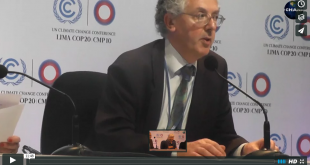The University of Earth, Urgent Action Series: COP 21 Paris 2015: A Panel of Young Graduates discusses their interest in the Ocean and problems caused by Global Warming
A deeper dive is taken into the problems of the Ocean’s and Global Warming.
The panel is made of younger scientists. The first question put forward to the younger panel is the following. What is the one concerning aspect of our ocean’s future, with the business as usual scenario that concerns you? What is the one thing that concerns you?
Without the ocean, climate change would be very different. They absorb 90% of the heat caused by greenhouse gasses. without the oceans ability to take up the heat, the temperature of the planet would be much higher than it is today. The ocean is also a huge carbon sink and absorbs about 30% of the world’s carbon emissions. The problem we face regarding oceans is Ocean Warming, Ocean Acidification, and ocean deoxygenation.
How do these three issues affect ocean life? We love seafood and seeing ocean life in its natural environment. Many species will be affected. We are expecting increases in acidity. Which in turn makes it harder for sea life to create their shells.
Ice sheets are between the ocean and the atmosphere, so ice sheets are being melted from both ends.
By increasing surface ocean water, the biological demand for oxygen in the water is increasing. For example, the bacteria in oceans need oxygen.
What the National Climate Assesment says on climate change, is that oceans are becoming warmer and more acidic. This is broadly affecting Ocean circulations, chemistry, ecosystems, and marine life. Rising sea surface temperatures have been linked with increasing levels of diseases in people and marine life.
The question is then raised how we are monitoring current changes in oceans that are being affected currently, and there is basically a huge demand for more ocean monitoring equipment.
 Mother Channel Environmental, climate change news and media.
Mother Channel Environmental, climate change news and media.



